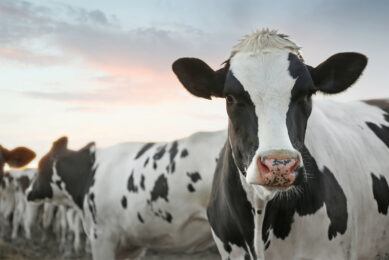UK vet association questions allegations around superbug
The British Veterinary Association (BVA) urged caution over the findings of a Soil Association (SA) literature review, which cites ‘overwhelming evidence’ that the use of antibiotics in UK livestock farms is contributing to the rise of resistant human E. coli infections.
The BVA questioned the claim that there is ‘overwhelming evidence’ in the Soil Association report and in contrast points to the scientific opinion of the European Food Safety Authority, which states:
“Few studies designed to assess risk factors for ESBL and/or AmpC occurrence in animals are available. The use of antimicrobials is a risk factor for selection and spread of resistant clones, resistance genes and plasmids.”
The opinion then goes on to state: “How widespread ESBL-carrying bacteria are in food-producing animals in the breeding/ rearing/ fattening sectors is generally unknown.”
University of Glasgow
The BVA also pointed to a recent study from the University of Glasgow in which the data show that animal and human populations of Salmonella Typhimurium DT104 differ significantly indicating that animal populations are unlikely to be the major source of resistance to these bacteria in humans. Could this also be the case for other bacteria?
Commenting, Carl Padgett, BVA president, said: “The leading scientific panel in Europe has taken the view that the evidence is simply not there to draw such conclusions. The incidence of resistance in animals and the use of antibiotics as a predictor of incidence in man is now being questioned by research from the University of Glasgow. Although this research relates to different bacteria, we have to reflect on whether such a conclusion may also apply to E. coli and we would welcome more research in this area.”
Kneejerk reactions
Padgett continued, “The BVA is concerned that kneejerk reactions to the very real problem of antimicrobial resistance can lead to blanket restrictions on the use of these medicines by veterinary surgeons that are not backed up by scientific evidence.
“However, the Soil Association’s call for a stronger regulatory framework for the newer antibiotics is something the BVA supports wholeheartedly.
“The BVA has been at the forefront of attempts to encourage the profession to use medicines responsibly, especially the newer classes of antimicrobials in animals. In the BVA poster on responsible use we specifically recommend that these antimicrobials, along with fluoroquinolones should be reserved for clinical conditions that respond poorly to other classes of antimicrobials.
“We will continue to work with the RUMA Alliance to promote strong guidelines on responsible use to veterinary surgeons.”
British Poultry Council
The British Poultry Council also disputed the SA’s report, saying that the UK poultry meat sector follows a responsible and responsive programme of antimicrobial stewardship.
Peter Bradnock, chief executive of the British Poultry Council, said: “We are aware of new scientific information on ESBLs and the ways they develop, and have reflected this in changes in the categories of antibiotics and prescription criteria for antibiotic treatment of chickens. We are not, however, aware of any recent evidence that ESBLs are increasing in chicken farms across the UK.”
Related website:
• British Poultry Council
• British Veterinary Association
• Soil Association











